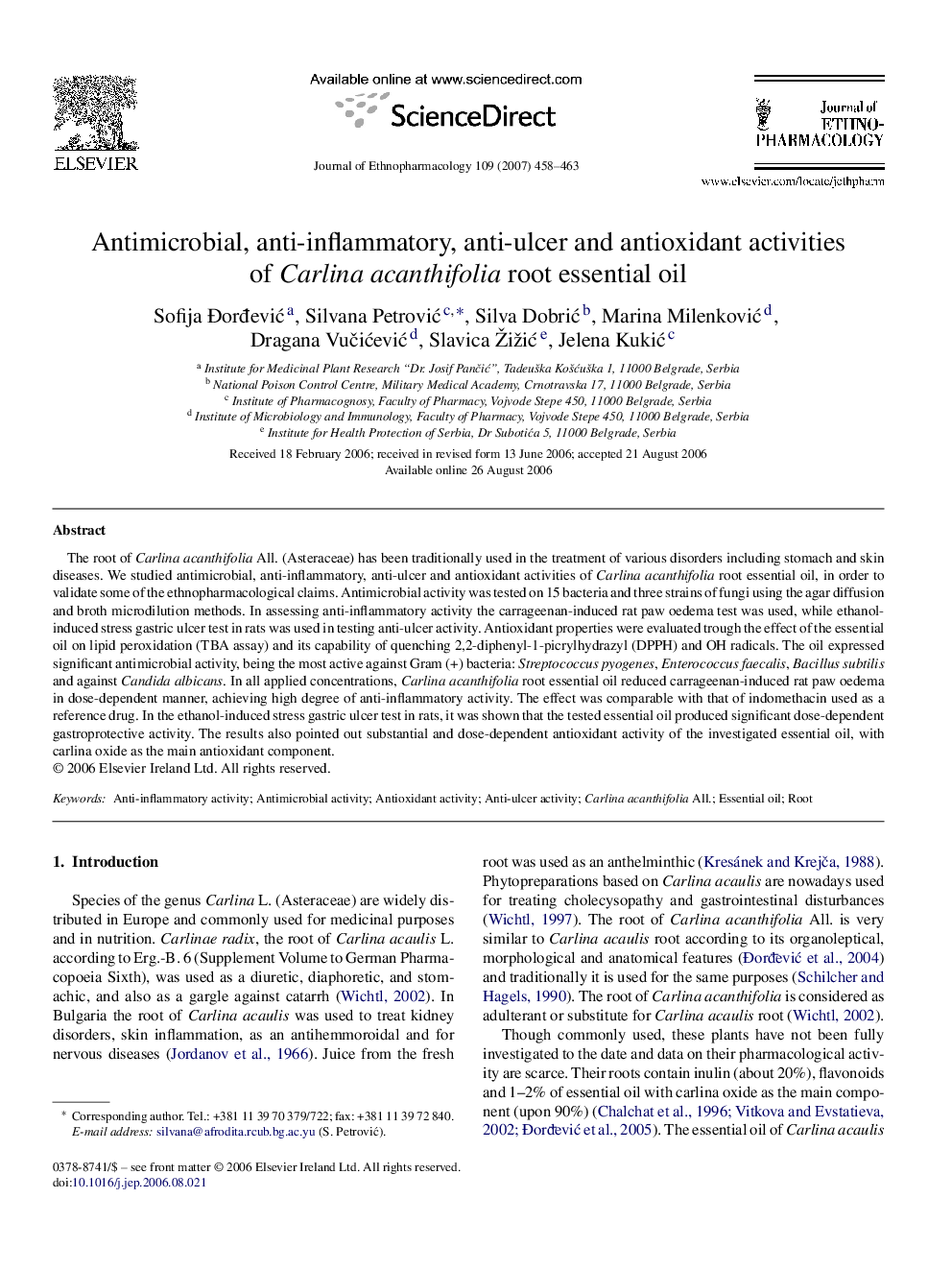| Article ID | Journal | Published Year | Pages | File Type |
|---|---|---|---|---|
| 2548413 | Journal of Ethnopharmacology | 2007 | 6 Pages |
The root of Carlina acanthifolia All. (Asteraceae) has been traditionally used in the treatment of various disorders including stomach and skin diseases. We studied antimicrobial, anti-inflammatory, anti-ulcer and antioxidant activities of Carlina acanthifolia root essential oil, in order to validate some of the ethnopharmacological claims. Antimicrobial activity was tested on 15 bacteria and three strains of fungi using the agar diffusion and broth microdilution methods. In assessing anti-inflammatory activity the carrageenan-induced rat paw oedema test was used, while ethanol-induced stress gastric ulcer test in rats was used in testing anti-ulcer activity. Antioxidant properties were evaluated trough the effect of the essential oil on lipid peroxidation (TBA assay) and its capability of quenching 2,2-diphenyl-1-picrylhydrazyl (DPPH) and OH radicals. The oil expressed significant antimicrobial activity, being the most active against Gram (+) bacteria: Streptococcus pyogenes, Enterococcus faecalis, Bacillus subtilis and against Candida albicans. In all applied concentrations, Carlina acanthifolia root essential oil reduced carrageenan-induced rat paw oedema in dose-dependent manner, achieving high degree of anti-inflammatory activity. The effect was comparable with that of indomethacin used as a reference drug. In the ethanol-induced stress gastric ulcer test in rats, it was shown that the tested essential oil produced significant dose-dependent gastroprotective activity. The results also pointed out substantial and dose-dependent antioxidant activity of the investigated essential oil, with carlina oxide as the main antioxidant component.
